
Michael Joseph Savage was an Australian-born New Zealand politician who served as the 23rd prime minister of New Zealand, heading the First Labour Government from 1935 until his death in 1940.
The Independent Political Labour League (IPLL) was a small New Zealand political party. It was the second organised political party to win a seat in the House of Representatives, and was a forerunner of the modern Labour Party.
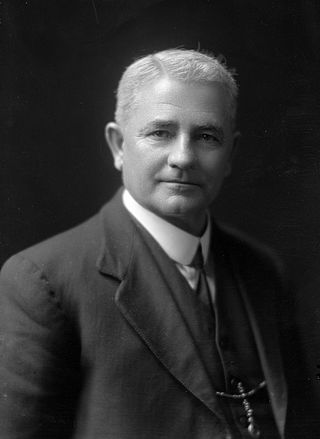
Henry Edmund Holland was an Australian-born newspaper owner, politician and unionist who relocated to New Zealand. He was the second leader of the New Zealand Labour Party.
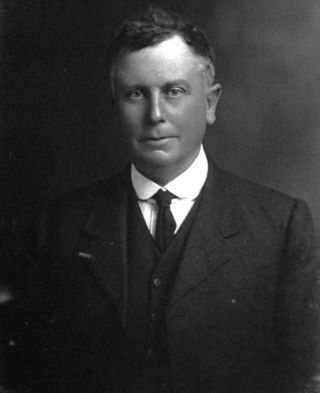
Alfred Humphrey Hindmarsh was a New Zealand politician, lawyer, and unionist. He died in the 1918 influenza epidemic. He served as the first leader of the modern New Zealand Labour Party.

Daniel Giles Sullivan was a New Zealand Member of Parliament, Cabinet Minister and Mayor of Christchurch.
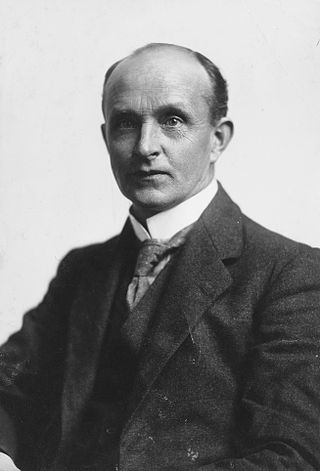
James (Jimmy) McCombs was a New Zealand Member of Parliament for Lyttelton.
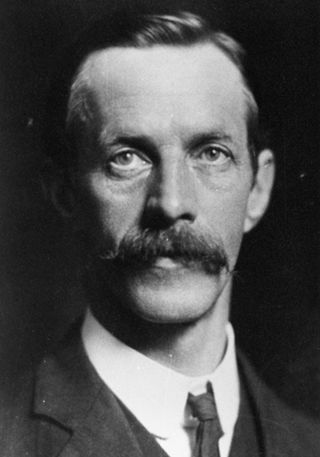
David McLaren was a Mayor of Wellington and Member of Parliament in New Zealand.

Robert Fletcher was a New Zealand politician of the Liberal Party.

Thomas Charles Atkinson Hislop (29 November 1888 – 21 June 1965) was a New Zealand politician, lawyer, and diplomat. He served as the mayor of Wellington from 1931 to 1944.

Robert Alexander Wright was the Mayor of Wellington from 1921 to 1925, and a New Zealand politician of the Reform Party.
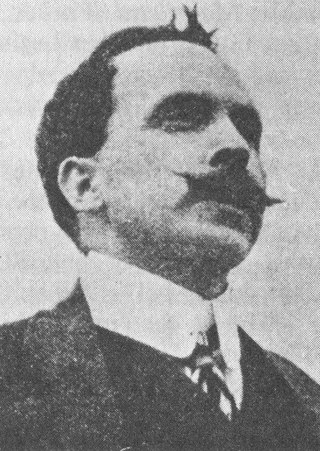
Michael John Reardon was a New Zealand political activist.
The Wellington Central by-election of 1918 was a by-election held in the Wellington Central electorate during the 19th New Zealand Parliament, on 3 October 1918. It was caused by the death of incumbent MP Robert Fletcher of the Liberal Party and was won by Peter Fraser with a majority of 1,624.
The Grey by-election of 1918 was a by-election during the 18th New Zealand Parliament. It was held on the 29 May 1918. The seat had become vacant due to the imprisonment of sitting member Paddy Webb who was jailed on the issue of his vocal opposition to conscription which had been enforced by Prime Minister William Massey. The by-election was won by the Labour candidate Harry Holland.
The Wellington North by-election of 1918 was a by-election held in the Wellington North electorate during the 19th New Zealand Parliament, on 12 February 1918. It was caused by the resignation of incumbent MP Alexander Herdman of the Reform Party, who was appointed as a judge of the Supreme Court, and was won by John Luke with a majority of 420.
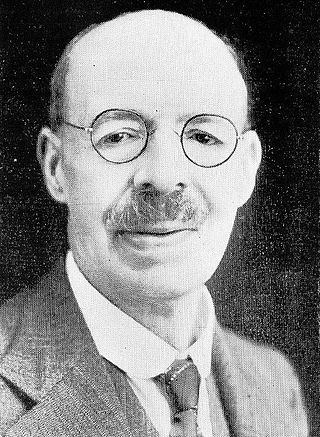
John Glover was a New Zealand politician and trade unionist. He was an organiser and candidate for the United Labour, Social Democratic Party then the Labour Party serving time in local government.
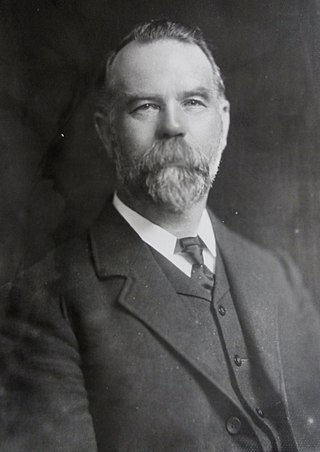
The 1913 Wellington City mayoral election was part of the New Zealand local elections held that same year. In 1913, elections were held for the Mayor of Wellington plus other local government positions including fifteen city councillors. David McLaren, the incumbent Mayor, was defeated by John Luke by a relatively narrow margin, becoming the new Mayor of Wellington. The polling was conducted using the standard first-past-the-post electoral method.

The 1917 Wellington City mayoral election was part of the New Zealand local elections held that same year. In 1917, elections were held for the Mayor of Wellington plus other local government positions including fifteen city councillors, also elected biannually. The polling was conducted using the standard first-past-the-post electoral method.
The 1921 Wellington City mayoral election was part of the New Zealand local elections held that same year. In 1921, elections were held for the Mayor of Wellington plus other local government positions including fifteen city councillors. The polling was conducted using the standard first-past-the-post electoral method.

The 1933 Wellington City mayoral election was part of the New Zealand local elections held that same year. In 1933, elections were held for the Mayor of Wellington plus other local government positions including the fifteen city councillors, also elected biannually. Thomas Hislop, the incumbent Mayor sought re-election and retained office unopposed with no other candidates emerging. The polling was conducted using the standard first-past-the-post electoral method.
The 1914 Wellington City mayoral by-election was part of the New Zealand local elections held that same year. The polling was conducted using the standard first-past-the-post electoral method.














